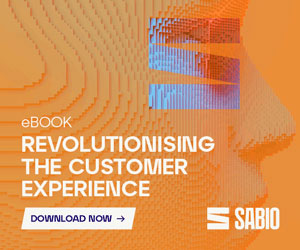We discuss how the agent role is changing and share advice for helping to develop great agent performance in the modern contact centre environment.
The Agent Role Is Changing
With the increase of self-service and automation taking up the simple and transactional queries, the agent role is becoming more difficult.
How? Well, agents are now expected to:
- Answer more complex queries
- Answer more emotional/relational queries
- Continue at a high call volume
- Keep track of their own learning
- Maintain good quality assurance (QA) scores
- Manage complex scripts and multiple screens
- Work through a knowledge base
- Understand how customer experience works
- Update and manage the CRM system and potentially others
Agents have to do all this, while maintaining a smile and concentrating on active listening and various questioning techniques. They are superheroes!
However, it’s not all doom and gloom. Contact centres are getting better by building teams of super-agents that can balance all of these responsibilities, through utilizing five key superpowers…
Your Five Superpowers to Build Agent Potential
When discussing how to develop super-agents in the contact centre, Garry Gormley, Founder of FAB Solutions, shared with us the following key elements.
- People Capability
- Leadership Development
- Process Improvement
- Customer Experience
- Technology
There are five key elements at play in this diagram, with “technology” (the fifth) being wrapped around the other four, highlighting how it can support each of the other parts included.
But let’s take a more general look at each of the elements included and how we can adapt in these five areas to support the development of a great contact centre team.
1. People Capability
This boils down to how you recruit your people, train them and ensure that they are competent to perform in their role.
You need to make sure that your coaching regimes evolve sufficiently to make sure that you train people in the right way.
The landscape behind the contact centre agent has changed, so you need to make sure that your coaching regimes evolve sufficiently to make sure that you train people in the right way.
So, train them on the right systems (and make sure that agents are not using bothersome workarounds), understand what the key competencies are and understand how you can train that in.
This involves looking at some of the key training methodologies that are out there and following expert advice, like:
- Creating a new quality framework to pinpoint individual training needs
- Developing coaching logs to track agent progress and follow-up
- Spotting strengths and celebrating when agents do something really well
Along with these points on training and competencies, don’t forget some other key fundamentals of managing “people”, like:
- Setting clear expectations of what somebody’s role is. Understand exactly what agents should be doing within their job and what “great” looks like.
- Giving the right level of feedback. If things aren’t going to plan, you need to give agents feedback in a friendly, timely manner. Deliver the feedback. Ensure it’s being worked on and improved on. Follow up on it.
- Creating regular performance reviews. Use monthly one-to-ones and informal conversations to understand what’s happening. Where does the agent want to develop? And what they have learned in the experiences that they’ve had in that month?
For more great ideas for evolving your coaching and training capabilities in the contact centre, read our article: 10 Great Ideas for Successful Call Centre Coaching Sessions
2. Leadership Development
Leadership development is crucially important in terms of giving feedback, having good conversations with agents and much more.
As Garry tells us: “You can’t have super-agents if you don’t have super-leaders.”
You can’t have super-agents if you don’t have super-leaders.
Garry Gormley
A super-leader knows that people thrive when they feel appreciated, and this makes them put even more effort into their work, causing productivity to increase. All of these things are interlinked.
But what more can leaders do so that agents feel appreciated? Well, for starters they can:
- Ask for their opinion on things and use their feedback whenever possible
- Celebrate team achievements and tell them their achievement is a big deal!
- Create an initiative around spotting people doing good things
While this is all great advice, the main thing is that you pay attention to the training and competencies of your leaders, just as you would for your agents.
This is rarely the case in contact centres, as agents are often promoted to leadership positions without having much clear guidance on how to develop their people. When this happens, leaders can hide behind their email and other desk duties.
So, you want your current leaders to be training up your leadership team of tomorrow, which you can do by:
- Asking agents who excel in one skill to run a coaching session on that skill with the rest of the team – and supporting them through that process.
- Discussing the needs of the team with promising agents and engaging in conversations with them regarding how they would suggest handling the matter.
- Giving your leaders of tomorrow their own “pet projects” to develop their leadership skills – like event organizing, creating coaching manuals and so on.
For more great tips like this, read our article: 10 Tips for Preparing Agents for Team Leadership
3. Process Improvement
When thinking about how you can set your people up for success, you need to look at agent workarounds and rethink old processes that have been around for so long that they have become permanent working instructions.
When doing this, Garry urges us to consider the following equation:
“If you have a skilful agent, who wants to go above and beyond, but you give them poor processes, you are going to get substandard performance,” says Garry.
But how can you improve processes for agents?
Well, the first step is to simplify things. Look at how agents use systems, knowledge sources and scripting, in side-by-side / virtual coaching, and consider how you can make the agent’s experiences easier.

Look at how agents use systems, knowledge sources and scripting, in side-by-side / virtual coaching, and consider how you can make the agent’s experiences easier.
But you should not only consider your view from the team’s seat, invite agents to offer improvement ideas and spot trends in what your team is telling you. Remember, great ideas come from the people that do the job day in, day out.
You can also consider AirBnB’s approach, which is uniquely entitled: “Elephants, dead fish and vomit”. This is where the company talks to their staff about:
- What’s the elephant in the room? – the things you don’t talk about.
- What are the things that have happened in the past that employees cannot forget about (i.e. the dead fish)?
- Do you need verbal vomit, where you can get things out in the open?
Contact centre agents are a too often overlooked source of insight. Don’t make that mistake!
4. Customer Experience
If you have lots of customers who are unhappy and complaining, you’re going to have unhappy agents. Emotionally fatigued agents at best.
On the flipside, if you create and deliver great customer experiences, you will create happy agents who are going to be more productive.
So, in order to develop the right mindsets, you need to make sure that you are thinking about your customer experience and how you can create positive key moments of success for customers.
When was the last time that you thought – from a customer’s perspective – how are things in the contact centre?
For starters, consider the last time that you walked a customer journey. More broadly, when was the last time that you thought – from a customer’s perspective – how are things in the contact centre?
When you run through enough of your various customer journeys, you will notice that there are key moments of truth that will make or break your customer experience.
If you do this and make changes to positively impact customer experience, that will allow you to do two things:
- Drive down complaints – Complaining customers equates to complaining agents, because things are not right. By driving down complaints, you’ll find that agents will naturally become more satisfied at work.
- Dig into those complaints – With a low number of complaints, you can better analyse them, make further positive changes and share relevant feedback with agents.
Of course, there are many more benefits to improving customer experience – like increasing revenue, customer satisfaction (CSAT) and so on – but it’s important not to underestimate the impact it has on agent experience too.
For lots of great advice on this topic, read our article: Improve Customer Experience: 5 Strategies That You NEED to Try
5. Technology
“Slow, clunky technology is a big cause of agent disengagement. Speeding this up, making workflows simple and utilizing gamification to make things fun, are all ways that technology can help agents to maximize their performance,” says Garry.
There is also technology out there that will make blended working easy, so agents can switch between voice, email, live chat and so on, all within the same agent desktop.
Repetitiveness of workload is a key factor in high attrition rates.
By coaching agents on each channel and making blended working simple, you can optimize productivity through multiskilling, broaden the agent skill set and add more variety to the agent role. After all, repetitiveness of workload is a key factor in high attrition rates.
Two other key ways in which technology can enhance agent output include:
- Gamification – This increases overall productivity by allowing agents to have fun at work, through using technology to motivate your team in the way that best suits them.
- Integrated technology – By unifying systems with technology, you can streamline your tech to simplify the agent experience by improving the user experience.
Technology integrations are a key part in taking your contact centre to the next level, while improving agent experience and enabling you to better empower your team.
For more on how technology can improve agent experience, read our article: Give Agents the Right Tools to Do Their Job
Key Takeaways
We’ve covered lots of advice for how you can get more from your call centre agents, but Garry has noted some final key points to take away from this article:
- Your agents are already superheroes
- It’s your responsibility as a leader to help unlock their potential
- The role of the agent has fundamentally changed and you need to see it from their perspective when inviting change
- Challenge yourself on your process – walk your customers’ journey
- Use the data from your customer experience to change your process and employee experience
- Unify your technology and help to simply the employee experience
We hope you find them helpful!
For more on helping to develop your contact centre team, read our articles:
- How to Improve Agent Performance in the Call Centre – With a Checklist
- Super-Agents: The Top Ten Qualities of Great Contact Centre Agents
- How to Inspire Contact Centre Agents to Improve Their Performance
Author: Robyn Coppell
Published On: 13th Jan 2021 - Last modified: 20th Jan 2021
Read more about - Customer Service Strategy, Agent Performance, Coaching, Editor's Picks, Leadership





































